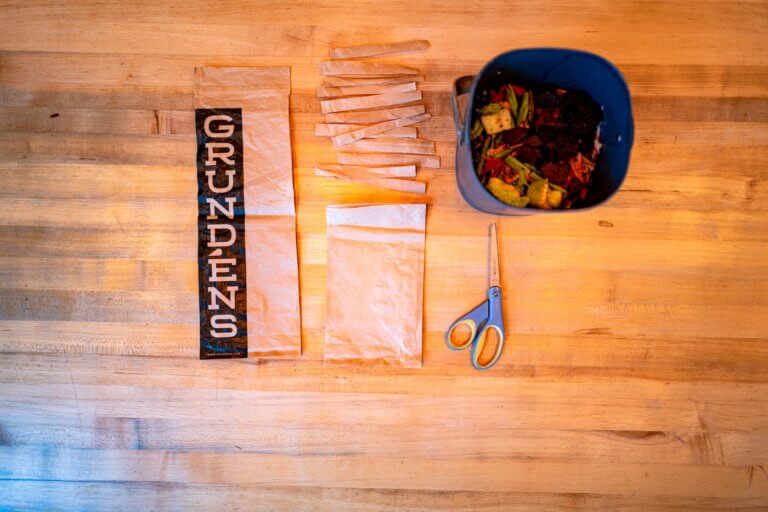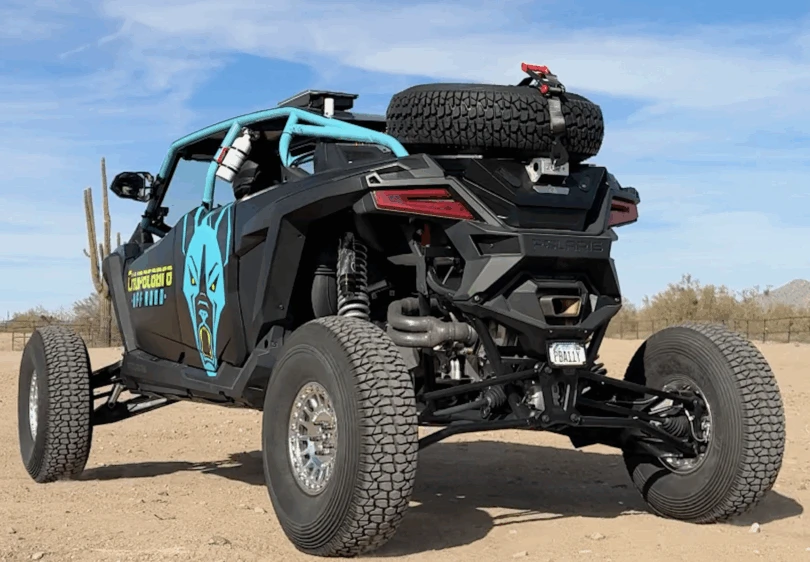Grundéns is launching a major effort to rid the outdoor and apparel industry of single-use plastics.
Nearly every product shipped to consumers is first packed into a plastic bag. Known across industries as “poly bags,” just 10% of these ubiquitous, clear plastic bags ever reach recycling centers. And worse, they can even cause problems for recycling facilities by jamming up machinery if not sorted correctly.
Americans alone use 100 billion plastic bags each year. And for the apparel industry, change has been slow in coming. There are few brands out there that have truly zero plastic waste, although the number of brands investing in non-plastic initiatives is slowly climbing.

So, when fishing and outdoor apparel brand Grundéns announced that it would be ditching plastics and switching to compostable packaging, the news carries a weight that could potentially upend the way products are shipped.
Grundéns worked with a third party to produce a protective bag that consumers can compost — at home. And now it’s willing to share that with other brands that also want to ditch poly bags.
Grundéns Non-Poly Bags — and More
Grundéns started developing its “eco” packaging in 2019 and actually got its inspiration from other sustainable packaging — coffee bags made from a biodegradable material.
“With plastics in the ocean playing a major role in the health of many fisheries around the world, we’re taking the lead in bringing an alternative to poly bags to the market,” says Grundéns CEO David Mellon, adding, “Sustainability is a journey.”
Grundéns’ new poly bags (short for polythene bags) are not made from plastic, but from polylactide, a raw ingredient derived from corn. (And yes, the bags meet standards from both the International ASTM body and the EU’s BS EN 13432.)
The coolest component is that consumers can compost it at home (which Grundéns tested; the bags composted at home in under a year). Grundéns will make the packaging in six different sizes to ensure that minimal packaging is used, depending on the size of what’s being shipped.
And, it will make the switch immediately, using the new packaging for orders placed as soon as spring 2021.
Outdoor Industry and Plastics: A Growing Trend?
Grundéns partnered with a third-party company based in China to produce and supply the bags and says it will share the tech with other companies. “We made this open-source — the packaging supplier is printed on the back of each eco-bag,” said Ashley Williams, Grundéns VP of Marketing. “The more brands that adopt this type of packaging, the better.”
Grundéns’ plan to take a stance against plastics and share it with others is reminiscent of another brand’s sustainability movement. In 2010, prAna started ditching plastic, using paper and twine in its packaging (and officially banned all plastics as of this year). More brands like Burton, Kokatat, and Smartwool have adopted prAna’s Responsible Packaging Movement, too.

However, many brands have been slow to ditch poly bags. Direct-to-consumer shipping and global trade pose risks to many products during transit, and few other materials have proven as reliable in protecting goods. So, a new type of bag that will return to a natural state in just a couple of years, even in home composting, is a promising development.
Another sustainable switch we’ve noticed among companies? Smaller brands like Ibex, Kitsbow, and Allbirds have switched from plastic hang tags to reusable metal bulb pins. Some of these brands even note that they buy credits to make apparel or gear shipments carbon neutral.
The trend is clear: brands are gradually reducing their reliance on single-use plastic. Consumers can drive this change with their purchasing power if they so choose.









